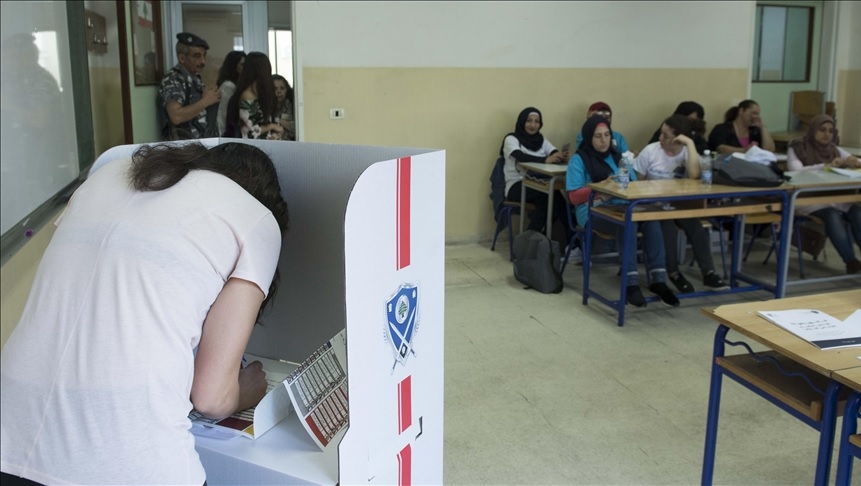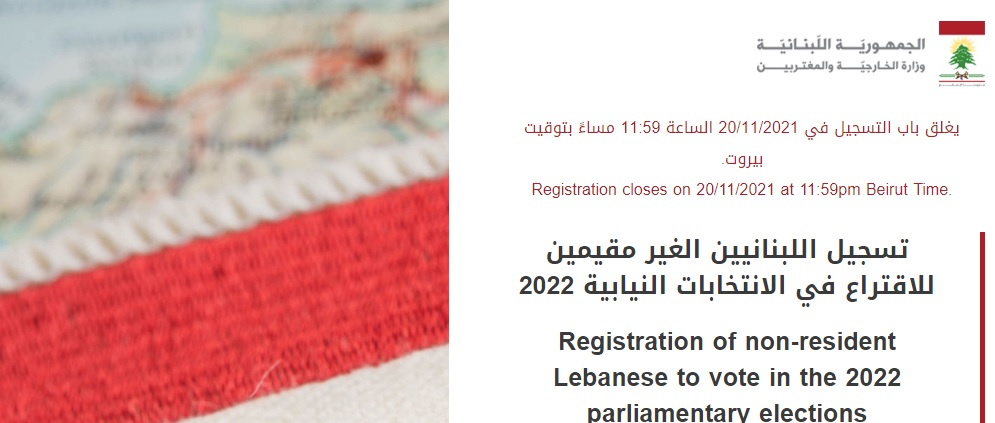Lebanon Embassy Canada 2022 Parliamentary Election Registration : lebanonembassy.ca
Organisation : Embassy of Lebanon, Ottawa, Canada
Election Name : 2022 Lebanon Parliamentary Election Registration
Applicable For : Lebanese Living in Canada
Country : Canada
Last Date :November 20, 2021
Website : https://lebanonembassy.ca/
| Want to comment on this post? Go to bottom of this page. |
|---|
Lebanon Embassy Canada
For The Lebanese Living in Canada, Registration FOR THE 2022 Parliamentary Elections IS NOW AVAILABLE
Related / Similar Election : MFA Lebanon Parliamentary Election 2022

Registration Period
From October 1, 2021 to November 20, 2021 @ 11:59 pm
Requirements For Registration
(Lebanese born before March 20, 2001)
1. A Lebanese passport, OR a Lebanese identity card, OR a civil status bulletin (ikhraj qayd)
2. Canadian Passport, OR a Canadian Permanent Residence, OR a Canadian driver’s license, OR a Canadian work OR Study Permit (Copy of a valid passport Required)
Registration Options
1.Online : https://diasporavote.mfa.gov.lb/
Step 1: Account creation (complete all personal information)
Step 2: Account activation. Clicking on the e-link received by email.
Step 3: Choose the Embassy and fill in your address.
Step 4: Locate the name on the voter registration (possible when Arabic is chosen as a language), then complete the information and verify any error.
Step 5: Upload the required documents.

2. Eligible voters may also register in person at the Lebanese Embassy or at the General consulate in Montreal.
Contact
For any further information, please contact: +1 (613)236-5825 ext.: 227/election2022@lebanonembassy.ca
Note:
The documents above are for registration only and not for voting.
Parliamentary Electoral System:
Lebanon’s national legislature is called the Chamber of Deputies. Since the elections of 1992 (the first since the reforms of the Taif Agreement of 1989) removed the built-in majority previously enjoyed by Christians, the Parliament is composed of 128 seats with a term of four years.
Seats in the Parliament are confessionally distributed but elected by universal suffrage. Each religious community has an allotted number of seats in the Parliament (see the table below). They do not represent only their co-religionists, however; all candidates in a particular constituency, regardless of religious affiliation, must receive a plurality of the total vote, which includes followers of all confessions.
The system was designed to minimize inter-sectarian competition and maximize cross-confessional cooperation: candidates are opposed only by co-religionists, but must seek support from outside their own faith in order to be elected.
In practice, this system has led to charges of gerrymandering. The opposition Qornet Shehwan Gathering, a group opposed to the previous pro-Syrian governments, has claimed that constituency boundaries have been drawn so as to allow many Shi’a Muslims to be elected from Shi’a-majority constituencies (where the Hezbollah Party is strong), while allocating many Christian members to Muslim-majority constituencies, forcing Christian politicians to represent Muslim interests. Similar charges, but in reverse, were made against the Chamoun administration in the 1950s.